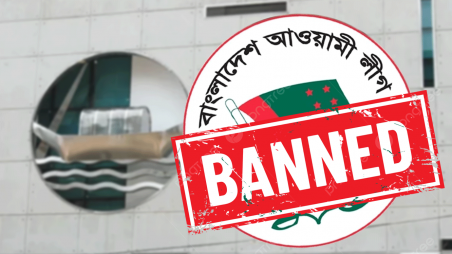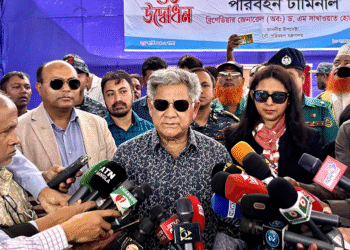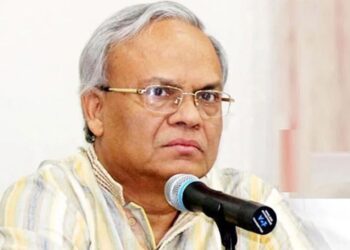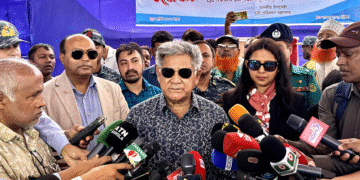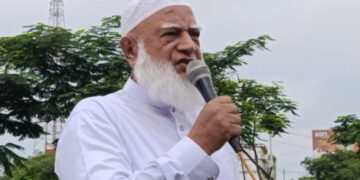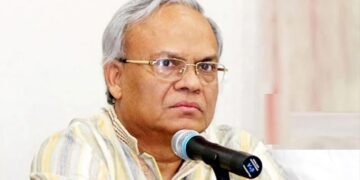One of Bangladesh’s oldest and most powerful political parties, the Awami League, has been formally outlawed by the country’s interim government under the Anti-Terrorism Act in a historic and unprecedented move. The ban, which went into effect on May 12, 2025, will be in place until the party and its leaders are put on trial for suspected crimes against humanity, genocide, and terrorism.
Gazette and Notification of Official Announcements
Speaking at a news briefing, Home Advisor Lt Gen Jahangir Alam said that a gazette notification had already been issued. This notice formally forbids the Awami League (AL) from engaging in both offline and internet business.
The announcement comes just two days after the interim government, in response to mass protests led by the National Citizen Party (NCP), decided to halt all activities of the AL under the Anti-Terrorism Act.
Amendments to Anti-Terrorism and ICT Laws
To give legal foundation to the move, the government has made urgent amendments to two major laws:
- Anti-Terrorism Act, 2009
- International Crimes (Tribunals) Act, 1973
The Anti-Terrorism Act has been amended to allow a complete ban on any entity or individual once they are listed as involved in terrorism. Notably, the revised Section 20 of the Act expands its scope by replacing “listed individuals or banned entities” with a broader term:
“Any individual or entity against whom action has been taken under sub-section (1) of Section 18.”
This change allows the government to block any form of support or publicity—such as public gatherings, press conferences, and social media posts—in favour of banned individuals or parties.
Additionally, the ICT (International Crimes Tribunal) law has been updated to empower the Tribunal to try political parties, not just individuals, for crimes like genocide and crimes against humanity. This clears the legal path for the trial of Awami League as a party.
Read More: Stock Market Crash in Bangladesh: Shocking 90,000 Crore Loss in Just 8 Months
Strict Restrictions on Media and Social Platforms
On the night before the ban was officially announced, President Mohammed Shahabuddin signed an ordinance amending the Anti-Terrorism Act. The ordinance prohibits any media coverage, public statement, or social media content that supports a party or person facing trial under this act.
This means that all forms of communication, campaigning, or public defence of the Awami League are now criminal offenses. Even sharing social media posts in favour of the party can lead to legal consequences.
Timeline of Key Events
- 10 May 2025: Emergency Advisory Council meeting chaired by Chief Adviser Muhammad Yunus approves the ban under anti-terror laws.
- The press wing announces amendments to the counterterrorism and ICT laws on May 11, 2025.
- 12 May 2025: The formal gazette declaration of the prohibition is confirmed by Home Advisor Jahangir Alam.
Long-Term Parties Are Now Prohibited
Since its founding in 1949, the Awami League has played a vital role in Bangladeshi politics, leading the country through multiple administrations and contributing significantly to the Liberation War. The party, however, now faces the most serious challenge in its history—legal action and trial under terrorism and war crimes charges.
What’s Next?
With this legal framework in place, the International Crimes Tribunal will begin its investigation and proceedings against the party and its affiliated organizations. Throughout the trials, it is expected that evidence related to past crimes and suspected terrorist activities would be reviewed.
Until the legal proceedings are concluded, the Awami League and its adherents will remain illegal.
To sum up
The official ban by the Awami League marked a significant turning point in Bangladesh’s political history. The interim government has made a strong statement that no political party is above the law by drastically altering the laws pertaining to war crimes and anti-terror. How this audacious move alters the political landscape of the nation will become clear in the days ahead.
Source: TBS

